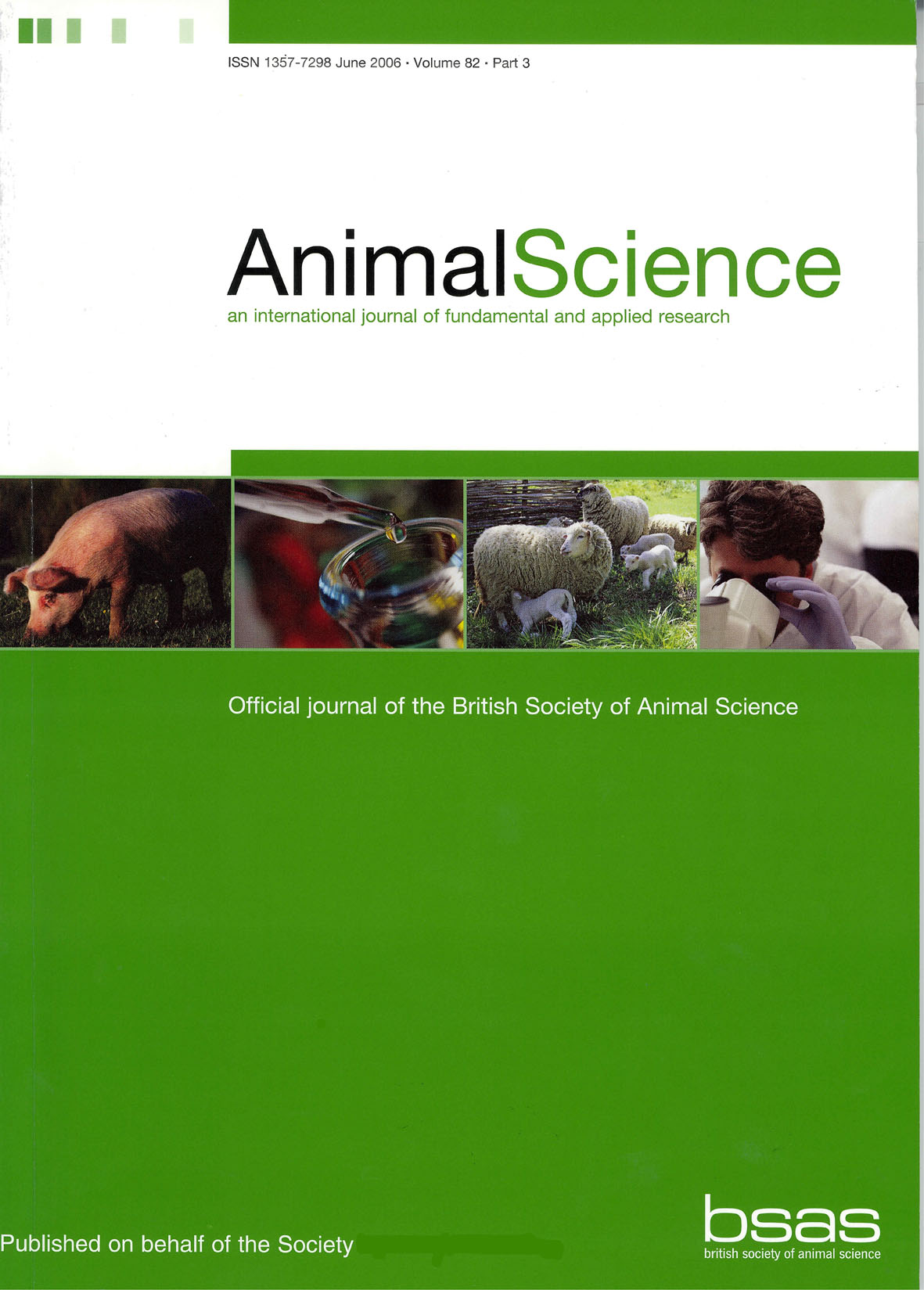Article contents
Effects of substitution of barley with citrus pulp on diet digestibility and intake and production of lactating ewes offered mixed diets based on ammonia-treated barley straw
Published online by Cambridge University Press: 18 August 2016
Abstract
Twenty-eight lactating ewes (mean 48 (s.e. 0·37) kg live weight) were used from days 12 to 52 after lambing to evaluate the effects on digestibility and production performance of replacing barley grain with citrus pulp in diets based on ammonia-treated barley straw. Concentrates included 0·82 to 0·83 of different barley to citrus pulp proportions: 100: 0 (T1); 66: 33 (T2); 33: 66 (T3) and 0: 100 (T4), 0·115 of soya-bean meal, and urea to make diets isonitrogenous. Ewes were adapted to a common diet for 11 days after lambing, and then were given 850 g/day of each experimental concentrate together with 850 g/day of chopped barley straw for 14 days and milk production and lamb growth were recorded. During the following 14 days ewes received the same amount of concentrate but the straw was offered ad libitum and straw intake was recorded as well as milk production and lamb growth. After completing both periods, four ewes per treatment were used for total collections of faeces and urine. Apparent digestibility of organic matter and neutral-detergent fibre increased linearly (P < 0·05) with increasing levels of citrus pulp although no differences were found in the digestible organic matter content of dry matter of diets because of differences in ash content. Urinary excretion of allantoin and purine derivatives per unit of digestible organic matter intake tended to decrease with increasing inclusion of citrus pulp (proportionately by 0·15), suggesting a decrease in microbial protein synthesis, though this effect was not significant (P > 0·05). Faecal excretion of purine bases also decreased (P < 0·05) as citrus pulp inclusion increased. No treatment effect (P > 0·05) on ewe live weight, milk composition or serum glucose and 3–OH butyrate was observed when a 1: 1 straw to concentrate ratio was given, but milk production and lamb daily gain decreased linearly (P < 0·05) with increased proportions of citrus pulp in the concentrate. Similar responses were detected when straw was given ad libitum and differences among treatments in terms of straw intake were not identified. It is concluded that a lower microbial protein flow might explain in part the reduction in milk production observed when barley was replaced with citrus pulp.
- Type
- Ruminant nutrition, behaviour and production
- Information
- Copyright
- Copyright © British Society of Animal Science 2004
References
- 6
- Cited by


